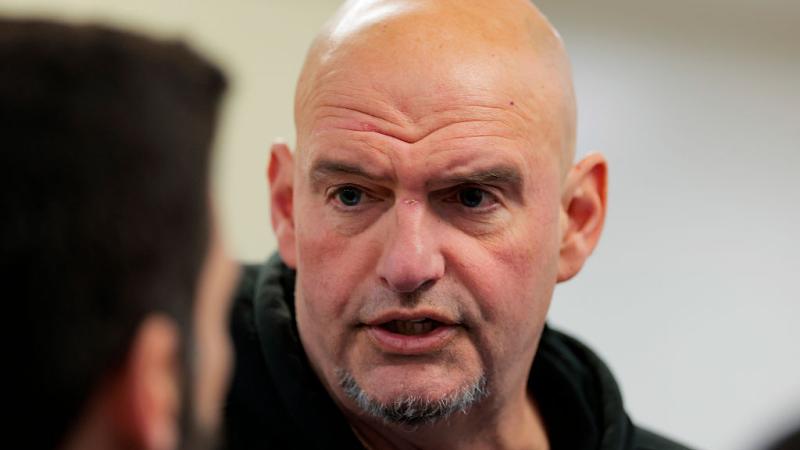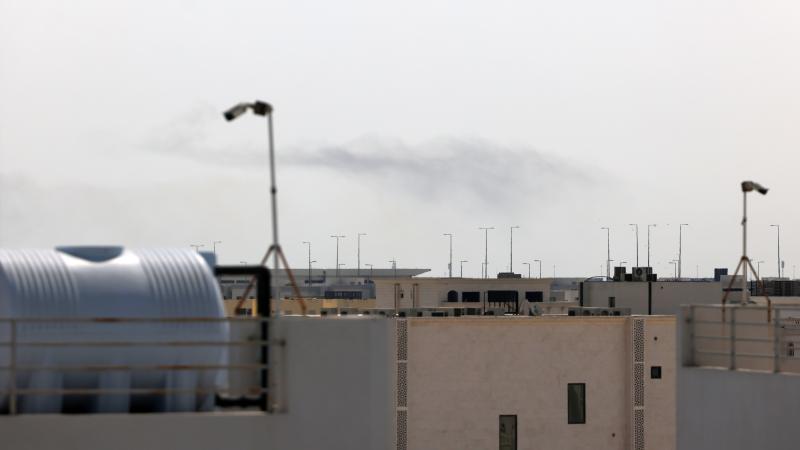USDA virus experiments with China call into question secretary's congressional testimony
Department kept working with CCP-linked Chinese Academy of Sciences after its Wuhan Institute of Virology was blocked from federal funding, but Vilsack claimed bird-flu research was not a "collaboration per se."
When Virginia GOP Rep. Ben Cline asked Agriculture Secretary Tom Vilsack about the department's continued work with the Chinese Community Party-linked Chinese Academy of Sciences following U.S. debarment of its Wuhan Institute of Virology, for high-risk viral research the feds belatedly acknowledged as such, Vilsack claimed it was not a "collaboration per se."
The former Iowa governor and three-month Democratic presidential candidate told the March budget hearing "everyone is doing their own separate research" in what Cline called a "$1 million collaboration on risky bird-flu evolution lab experiments" among the U.S., U.K. and China, which started in April 2021 and end in February 2026.
Vilsack snapped that there was "nothing to terminate" when Cline asked him to cut off CAS, accusing Cline of "doing a disservice to the professionals and scientists" at USDA by doubting the secretary's claim that "all of this [U.S. data] is basically walled off" from its partners.
Nearly 200 pages of public records obtained by the White Coat Waste Project and published by the animal-research watchdog last week calls into question some of Vilsack's representations, showing that everyone – including the USDA lead – referred to the project as a collaboration.
It was even titled "US-UK China Collab: Predictive Phylogenetics For Evolutionary and Transmission Dynamics of Newly Emerging Avian Influenza Viruses," and explicitly stated that the U.S. principal or co-principal investigator "will perform sites visits [sic] to the UK or China groups in order to evaluate progress and share results on site."
"The documents detail how the USDA-CCP project uses viral evolution and gain-of-function methods" – which could make a pathogen more infectious or deadly – "to see if genetically modified bird flu viruses can jump to mammals in 'severe' maximum pain animal experiments conducted in the US and China," WCW wrote in an email.
Lawmakers should cut off "unaccountable animal labs" in China from the federal spigot as they consider bills to restrict Chinese funding, dependence and influence, said WCW Senior Vice President Justin Goodman. "Taxpayers shouldn’t be forced to foot the bill for animal experiments with foreign adversaries that supercharge viruses and can cause pandemics or create bioweapons."
The House passed several of those bills Monday afternoon, including the Biosecure Act, whose sponsors say it restricts "federally funded medical providers from using foreign adversary biotech companies of concern," including People's Liberation Army-affiliated WuXi AppTec.
These companies "collect the genetic data of Americans to likely use for research with the Chinese military," which risks "allowing our most sensitive information to be used against us," the House Select Committee on the CCP said in February. WuXi has three foreign labs eligible for U.S. funding on the National Institutes of Health's "Animal Welfare Assurance" list.
USDA did not respond to Just the News requests to explain how Vilsack's representations to Congress line up with the documents obtained by WCW.
Two years after the Government Accountability Office warned that defense officials couldn't track how Chinese-bound biological research funds were being used, the Pentagon’s chief watchdog told Congress in June the Defense Department still can't tell whether taxpayer money is funding Chinese research that could make pathogens more dangerous or deadly.
On a USDA page last modified Sunday, the Agricultural Research Service described the "US-UK-China Collab" project's aims.
They include "in vivo [within a living organism] passage of viruses through mallard ducks and Chinese goose species to predict evolution in natural hosts" and "viral evolution and transmission dynamics of avian influenza virus (AIV) infection in Japanese quail as an indicator species of potential to jump into mammalian hosts."
Vilsack's exchange with Cline in March didn't assuage bipartisan lawmakers who protested the collaboration the following month.
They cited a 2023 report by Georgetown University's Center for Security and Emerging Technology that says “serial passaging frequently resulted in gain-of-function (GOF) genome alterations” and "may increase" the likelihood and risk of animal-to-human transmission.
WCW's document disclosures follow the Centers for Medicare and Medicaid Services' resumed mandate on hospitals to track and report "confirmed infections and bed capacity" related to flu, RSV and COVID-19 "among newly admitted and hospitalized patients," starting Nov. 1.
The requirements were devised by CMS, the Centers for Disease Control and Prevention and Administration for Strategic Preparedness and Response, and take a "modified form similar to previous reporting requirements" that expired April 30. "In the event of a declared national, state, or local Public Health Emergency," further reporting may be required.
WCW said the records undermine what Chinese collaborator Liu Wenjun, of the CAS's Institute of Microbiology, told Science after Iowa GOP Sen. Joni Ernst squawked about the "'fowl' play" among USDA, CAS and U.K.'s Roslin Institute after WCW brought the project to her attention.
The watchdog pointed to Liu's affiliation with the "CAS Key Laboratory of Special Pathogens, Wuhan Institute of Virology," as documented in a 2022 paper on avian flu virus replication in human cells. WIV is a suspected source of SARS-CoV-2.
Liu said "he was part of a multi-institution project with WIV … that has ended," as Science paraphrased it.
Chinese biosecurity laws require that "all research activity is done safely and is not harmful to animals and humans, or even to the environment," Liu said.
WCW records show U.S. and Chinese participants would perform "virus challenge experiments" in chickens, ducks, geese, quail and mice, at the high end of the "mild" to "severe" scale, with resulting symptoms including "diarrhea, edema … mild to severe depression and death."
Thirty fowl would be subjected to USDA's highest pain or distress classification, "E," without medication to relieve them.
Science paraphrased Roslin Institute virologist Paul Digard, the U.K. lead, as saying the "collaborators are not attempting to passage viruses to make them more transmissible in birds or mammals," but WCW emphasized the project documents suggest that result.
The collaborators are studying H5NX, H7N9 and H9N2 lineages, which they acknowledge "pose the greatest current risk to both animals and humans," and the research involves "the production and/or use of genetically modified microbes," the records show.
"Activities hazardous to personnel: our project revolves around the use of IAV [influenza A virus], a pathogen with the potential to infect man," one section reads. "Do these viruses demonstrate the ability to jump from avian to mammalian species during the course of passage?" is one question the data will attempt to answer.
The Facts Inside Our Reporter's Notebook
Links
- Ben Cline asked Agriculture Secretary Tom Vilsack
- U.S. debarment of its Wuhan Institute of Virology
- high-risk viral research the feds belatedly acknowledged
- not a "collaboration per se."
- three-month Democratic presidential candidate
- March budget hearing
- published by the animal-research watchdog
- USDA lead
- "US-UK China Collab
- Biosecure Act
- House Select Committee on the CCP
- National Institutes of Health's "Animal Welfare Assurance" list.
- Government Accountability Office warned that defense officials couldn't track
- Pentagonâs chief watchdog told Congress
- USDA page last modified Sunday,
- bipartisan lawmakers who protested the collaboration
- 2023 report by Georgetown University's
- Centers for Medicare and Medicaid Services' resumed mandate on hospitals
- expired April 30
- Liu Wenjun, of the CAS's Institute of Microbiology, told Science
- Joni Ernst squawked about the "'fowl' play"
- WCW brought the project to her attention
- 2022 paper on avian flu virus replication in human cells















